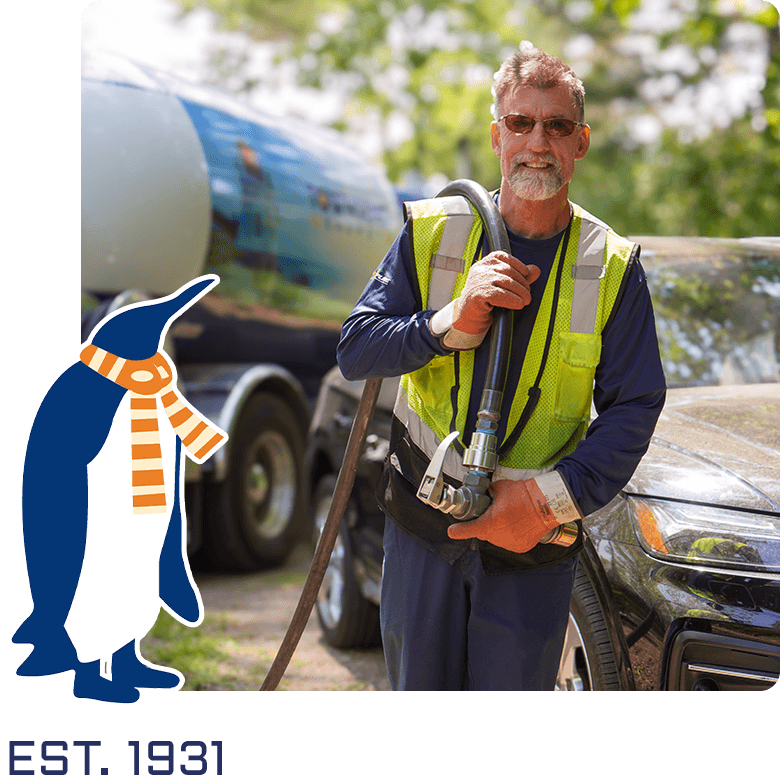
Understanding Dual Fuel Heat Pump: What You Need To Know
A hybrid heat pump system is a pinnacle of modern home heating solutions. By blending the efficiency of an electric heat pump with the steadfast backup of a gas or oil furnace or boiler, this innovative system offers a versatile and effective method to maintain comfort throughout the seasons. In today’s world, where energy efficiency and flexibility are paramount, opting for a hybrid heat pump is a wise choice that enhances the comfort of your living space, decreases energy consumption, and minimizes environmental impact.
Understanding Heat Pumps
A heat pump is a versatile system that transfers heat from one location to another, effectively heating or cooling an area. Instead of generating heat directly, it operates by relocating existing warmth, making it a highly energy-efficient choice for warming and cooling your environment.
Here are the most prevalent types of heat pumps:
- Air-Source Heat Pumps: These devices extract heat from the external air, offering an economical and flexible solution for temperature control.
- Water-Source Heat Pumps: Leveraging nearby bodies of water, these systems use water as a medium for heat exchange, providing efficiency where water access is available.
- Geothermal Heat Pumps: By harnessing the earth’s or groundwater’s consistent temperatures, these units are exceptionally efficient, although they come with higher initial installation costs.
Ensure your home stays cozy year-round—call Townsend Energy for top-notch HVAC maintenance and repairs!


The Dual Fuel Concept & the Hybrid Heat Pump
The dual fuel concept is ingeniously realized in the hybrid heat pump system. This forward-thinking approach to heating and cooling marries the energy-saving advantages of an electric heat pump with the dependable warmth of a backup combustion system, which may utilize gas or oil. This combination allows homeowners to enhance heating efficiency and ensure consistent comfort and flexibility across different climatic conditions.
Hybrid heat pumps provide clear benefits over traditional models that depend entirely on electricity:
- Enhanced Efficiency: In moderate climates, hybrid heat pumps predominantly operate using their electric mode, taking full advantage of this method’s high efficiency. However, when the temperature plummets, the system seamlessly transitions to the backup combustion heating. This shift ensures effective heating even during severe cold spells.
- Versatility: Dual fuel systems excel in adaptability by automatically choosing the most cost-effective energy source according to the outdoor temperature. This smart selection process enhances the system’s efficiency and ensures it operates optimally year-round.
- Cost Savings: Hybrid heat pumps strategically use electricity during periods when it is most efficient and switch to gas or oil in extreme cold. This adaptability leads to significant energy cost reductions compared to traditional electric-only heat pumps.
- Reduced Environmental Impact: Dual fuel systems enhance eco-friendliness by using natural gas or oil only when absolutely necessary. This selective use significantly reduces the overall carbon footprint.
Components of a Dual Fuel Heat Pump
- Heat Pump Unit: As the core of the dual fuel system, the heat pump unit functions as both a heater and an air conditioner. It skillfully extracts heat from the outside air to warm the home and releases indoor heat outside to cool it, providing effective climate control throughout the year.
- Backup Combustion Furnace or Boiler: Utilizing natural gas or oil, this component acts as a secondary heat source in the dual fuel system. It steps in to provide essential warmth when the primary heat pump is less effective during periods of extreme cold.
- Thermostatic Control: This crucial component intelligently toggles between the heat pump and the backup furnace or boiler based on the outdoor temperature. This switching mechanism ensures the operation remains energy-efficient while maintaining consistent indoor comfort.
How Does a Dual Fuel Heat Pump Work?
A dual fuel heat pump functions by optimizing energy efficiency through a smart switching mechanism between two distinct heating systems: the electric heat pump and the backup combustion furnace or boiler. The system determines which to use based on the current outdoor temperatures.
Heat Pump Mode in Mild Temperatures
In milder conditions, the dual fuel heat pump primarily operates in heat pump mode, where it efficiently extracts heat from the outdoor air—even during cooler weather—and transfers it indoors to warm the building. This mode is celebrated for its high energy efficiency, making it the preferred heating method during temperate weather.

Hear From Our Happy Customers
-
"Great customer service and heating plan knowledge."Helped create a customized plan that was best for my family and took the time to explain it all!Kelsey S.
-
"The model of what professional customer service should look like."Easy to contact by phone - by a human!, and then a timely call back to schedule a tech who arrived promptly, spent considerable time handling our boiler issue, was courteous, respectful of property, and a pleasure to deal with.Robert K.
-
"Excellent customer care!"She was incredibly professional, helpful, and even offered me a better plan for my budget!Zoe M.
-
"10/10 experience!"He didn’t rush through anything and answered every single question that I had (there were lots of them lol)Brianna E.
-
"Townsend is lucky to have Chris join their team!"From the time Townsend had Chris reach out to us- his communication and service was top notch.Laurie C.
-
"Thanks to everyone working at Townsend this weekend!"He also identified a pair of components likely to fail soon, and I can call to schedule their replacement after the cold snap passes.J. Norton
-
"I would give them 100 stars if I could."If you are looking for the propane service look no further. Any time I need something they came through.S.B.
-
"I should have called sooner!"Super nice folks and after a quick and easy call, we found a solution that works for my budget.Lisa L.


Trusted Services For Residential and Commercial Customers
-
Integrity
We live by a rock- solid code of ethics that embody honesty, decency. and fairness. "A promise made is a promise kept"
-
Safety
Our personal well-being is paramount to our mission. The well-being of the people who count on us is precious. Our actions protect and preserve the people, property. and environment around us.
-
Customer Centric
We honor the commitment our customer makes to us by working tirelessly to demonstrate that we genuinely care. We are inspired by the real improvement our actions make in our customers' lives.
-
Team
We respect the individuality of each team member and count on each other when it matters most. Together we create an unfiltered rhythm of open dialogue and collaboration.


Townsend Energy continues to serve homes and businesses throughout Maine, Massachusetts, and New Hampshire. Visit our Areas We Serve page to find out if we service your neighborhood!
Combustion Furnace or Boiler Mode in Colder Temperatures
When the mercury falls to significantly low levels, the dual fuel system seamlessly transitions to its combustion furnace or boiler mode. As the heat pump’s efficiency wanes in frigid temperatures, the backup furnace or boiler, typically fueled by natural gas or oil, becomes more effective. This shift ensures dependable heating and sustained indoor comfort throughout the harsher weather conditions.
Benefits of Integrating Both Systems in One
- Energy Efficiency
- Adaptability
- Energy Cost Savings
- Reduced Environmental Impact











